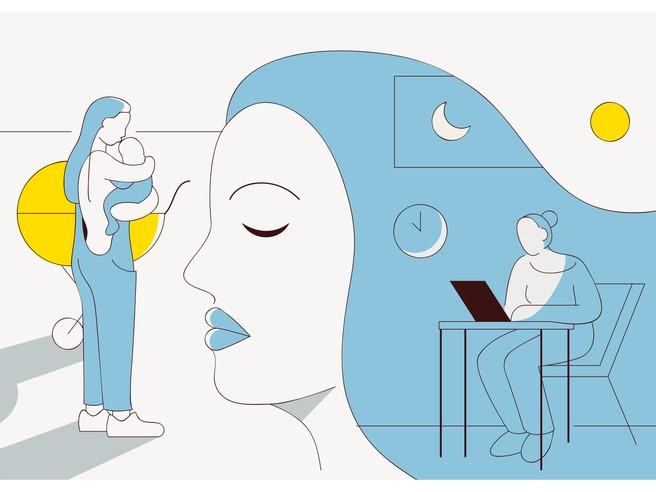
I know first-hand that adult learners need a variety of supports to succeed

When I returned to college in my early 40s, I needed a flexible programme that I could fit around working a full-time job and being a mum.
When I later went to work for that same college, I quickly discovered that many of my students were in the very same boat. Many of them had struggled in high school, and they needed both academic and personal support, including a flexible environment.
That’s because adult learners like myself and my students lead complicated lives. Older learners — especially those coming to college for the first time — often need additional support, because they’re trying to build a new future for themselves atop a shaky academic foundation.
- A guide to promoting equity in HE for refugees and asylum seekers
- How to attract and support non-traditional students in higher education
- Belonging: why it is the next step on the equity, diversity and inclusion ladder
Nationwide in the US, there’s a huge current and potential pool of older learners. Slightly more than a third of all college students are 25 and older. Roughly 36 million Americans have some college credits but haven’t earned a degree. About 3.5 million of them — equivalent to 20 per cent of today’s US college population — earned at least two years’ worth of academic credits within the past decade.
So what’s stopping older learners being in college? The same factors that held me back for years: jobs; families; children; lack of time and money; and poor grades in high school and college.
I got pregnant in high school, quit school to have my baby and was married at 18. Later, as a single mother, I earned my General Educational Development Test and earned a certificate so I could work as a medical assistant in a primary care physician’s office.
Life was good. But over the years I wanted more. The hard part was figuring out how to get there.
By the time I hit my early 40s, I was working 8am to 5pm each day as a medical assistant in an obstetrics and gynaecology office. My two youngest children were living with me. I owned a home. I was busy. But I knew I needed more education to get ahead. I needed a programme I could afford and that I could fit into my already tight schedule.
I found an associate’s degree completion programme in health and medical administrative services at the College of Health Care Professions (CHCP) that checked all those boxes. I could put all my medical assistant certificate credits towards my associate’s degree. The programme started when I needed it to. It was also accelerated, so I could finish in eight months.
The programme required me to be on campus just one night a week. I took the rest of my classes online on my schedule. Weekly assignments were always due on the same days (Wednesdays and Sundays). That gave me a degree of predictability I needed.
Maybe best of all, the school felt like a family. Everyone I dealt with – the registrar, my admissions adviser, my instructors – let me know they would help me however I needed. They were never shy about offering support.
Compared with a traditional college experience, this was a much better fit. It definitely worked for me: I got my associate’s degree on time, and was named class valedictorian. I enjoyed the experience so much I went on to earn my bachelor’s degree at CHCP. I was able to transfer all my associate’s degree credits into the bachelor’s degree completion programme. This “earn and learn” model made continuing my education possible.
Now I work at CHCP, where I teach classes and direct the medical assistant programme. In both roles, I work with students – full-time workers and parents – who remind me of myself.
Most of my students are in college for the first time. A lot of them barely made it through high school. Many of them have told me their parents and teachers said they would never amount to anything. Their self-confidence is shot.
So I make sure to listen to my students and help them with their academic and personal needs. I tell them they can come to me for any help they need. My driving force is my compassion for all students and my desire to see them succeed. I’m here to pick them up and help them feel that they belong in college. The smile I give them might be the only one they get each day.
It’s clear to me that our approach is working. The Rice University School Mathematics Project conducted an independent study of the success rate of CHCP’s Hispanic students over seven years. They found that about 78 per cent of these students graduate, and 80 per cent found jobs in their field of study – figures well above state and national averages. The findings suggest that CHCP, and any other college that intentionally prioritises student success with flexible academic programmes and numerous wraparound services can drive economic mobility for adult learners.
Students come to school to find success, and institutions must break down those barriers that prevent students graduating and improving their lives. Whether it’s a flexible class schedule, specific help for adult learners, personal reassurance or a friendly smile, I know from my own experience that colleges that offer their learners a variety of supports are the ones best positioned to help them succeed in school and in life.
Shannon Uresti is director of the medical assistant programme at the College of Health Care Professions, Texas, US.
If you would like advice and insight from academics and university staff delivered direct to your inbox each week, sign up for the Campus newsletter.


